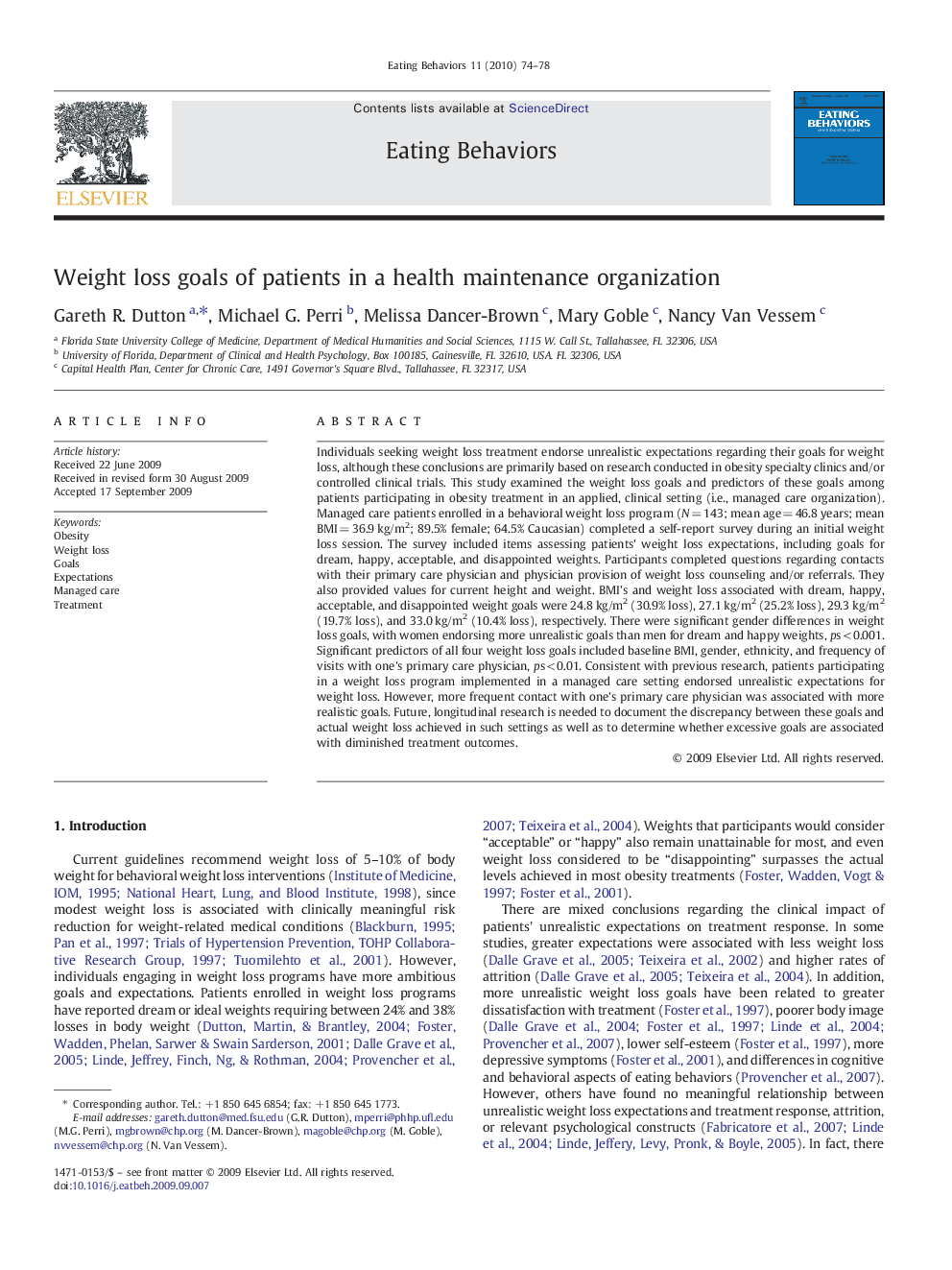| کد مقاله | کد نشریه | سال انتشار | مقاله انگلیسی | نسخه تمام متن |
|---|---|---|---|---|
| 906787 | 917022 | 2010 | 5 صفحه PDF | دانلود رایگان |

Individuals seeking weight loss treatment endorse unrealistic expectations regarding their goals for weight loss, although these conclusions are primarily based on research conducted in obesity specialty clinics and/or controlled clinical trials. This study examined the weight loss goals and predictors of these goals among patients participating in obesity treatment in an applied, clinical setting (i.e., managed care organization). Managed care patients enrolled in a behavioral weight loss program (N = 143; mean age = 46.8 years; mean BMI = 36.9 kg/m2; 89.5% female; 64.5% Caucasian) completed a self-report survey during an initial weight loss session. The survey included items assessing patients' weight loss expectations, including goals for dream, happy, acceptable, and disappointed weights. Participants completed questions regarding contacts with their primary care physician and physician provision of weight loss counseling and/or referrals. They also provided values for current height and weight. BMI's and weight loss associated with dream, happy, acceptable, and disappointed weight goals were 24.8 kg/m2 (30.9% loss), 27.1 kg/m2 (25.2% loss), 29.3 kg/m2 (19.7% loss), and 33.0 kg/m2 (10.4% loss), respectively. There were significant gender differences in weight loss goals, with women endorsing more unrealistic goals than men for dream and happy weights, ps < 0.001. Significant predictors of all four weight loss goals included baseline BMI, gender, ethnicity, and frequency of visits with one's primary care physician, ps < 0.01. Consistent with previous research, patients participating in a weight loss program implemented in a managed care setting endorsed unrealistic expectations for weight loss. However, more frequent contact with one's primary care physician was associated with more realistic goals. Future, longitudinal research is needed to document the discrepancy between these goals and actual weight loss achieved in such settings as well as to determine whether excessive goals are associated with diminished treatment outcomes.
Journal: Eating Behaviors - Volume 11, Issue 2, April 2010, Pages 74–78